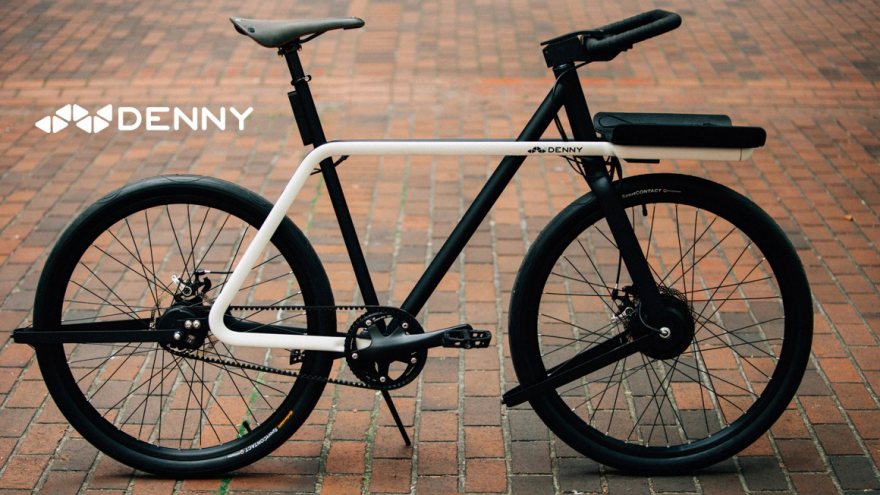
7 Tips for Nailing that Industrial Design Job Interview
How Best to Prepare Yourself and Your Work for Presentation
If you're granted an interview at the most prestigious design firm in the country, how confident would you feel going into it? Many designers can relate to feeling nervous before or during an interview or while presenting their work.
To be a great designer, you must be able to communicate with confidence and clarity. What aspects of the interview are the most important? What do seasoned designers look for when hiring new designers? To find answers, I discussed the interview process with designers and directors from frog, Teague, Smart Design and 4moms. The stories they shared provide valuable insight for anyone who's preparing for a job interview or presentation. Nail these seven steps the next time you present or interview, and you'll be in good shape.
[Editor's Note: Looking to land your next dream job? Set up an online portfolio and check out design jobs on Coroflot.]
1. Practice
So, what's the best way to prepare? According to our pros, just practice. Just because you understand your project does not mean you'll be able to articulate it during a presentation. One of my favorite suggestions came from Russell Blanchard, Director of Design at Smart Design. He says, "Share your work with someone who knows nothing about design and ask them if they understand. Communication is the most important skill to have in an interview. If people can't follow your work, it won't hit home, even if the project is well-executed. Your work has to make sense to people." After sharing your work with a friend, grandparent or parent ask him or her to summarize it. If your work is easy to follow, it will make your job easier when presenting.
 Peeler prototypes for the OXO line of hand-held utensils, created by Smart Design. Smart's work for OXO revolutionized the kitchen tools industry.
Peeler prototypes for the OXO line of hand-held utensils, created by Smart Design. Smart's work for OXO revolutionized the kitchen tools industry.2. Prepare
Don't show up to an interview or presentation without everything you need. For example, even if you're told a computer would be provided for use, bring your laptop or tablet just in case. Preparedness is a sign of professionalism and helps build trust among clients and coworkers. You owe it to your audience to arrive prepared when you're given their attention. Elijah Wiegmann, Director of Design at 4moms says, "Asking if we have a computer for your thumb drive or to view your work on raises a flag. Have a bulletproof way to show your work, and then have a backup." Arriving prepared however, includes more than having your work ready to present.
Prepare for an interview by doing more homework than others who land interviews. Spend time learning about the company, its values and your interviewers. Go in there with enough knowledge to be able to have a conversation with your interviewer about their company, its culture and his or her responsibilities. "I like it when designers come in with a portfolio tailored to Smart Design." Blanchard shares. "For example, one designer began by highlighting one of Smart Design's company values. They proceeded by showing examples of how they did the same throughout various projects. It showed they understand what we do here."
Share your work with someone who knows nothing about design and ask them if they understand. Communication is the most important skill to have in an interview. - Russell Blanchard, director of Smart Design
3. Self-Edit
As designers, we tend to be fond of our own work. Our portfolio reflects the way we approach problems, seek solutions and communicate outcomes. A tremendous amount of work goes into creating its contents, so it may be difficult to choose what to show and what to omit. Roger Jackson, Creative Director at the Kitchen of Teague offers, "Just show your best work; in this case, less is more. You're better off leaving the interviewer impressed. Self-edit by reviewing your portfolio page-by-page and ask why. Make sure there's a takeaway for every page." If the page is weak, or doesn't communicate something about you or your skills, omit it.
Another self-edit strategy is to be aware of a first, second and third read. "There's a 5 second read, a 10 second read, and maybe a 30 second read if you're lucky," explained Steve Selzer, Creative Director of frog. Knowing what a viewer might take away from each level of read can help you decide if a page contributes or not. It's easy to forget that the person reviewing your portfolio might not devote as much time to each page as you think.
 frog partnered with the founders of New Matter to co-develop the company's 3D printing ecosystem—from branding and identity system to the design of the printer, marketplace, and application.
frog partnered with the founders of New Matter to co-develop the company's 3D printing ecosystem—from branding and identity system to the design of the printer, marketplace, and application. 4. Be Your Honest Self
When asked what the first thing he hopes to learn from an interviewee, everyone I spoke with offered a similar response: "Would I mind working, traveling or spending time around this person?" Your personality carries lots of weight during the interview process. If you land the job, you'll be spending lots of time with your coworkers. They want to be sure you're fun to be around. Elijah Wiegmann says, "There are too many horror stories of [designers] doing something cheesy in hopes of being memorable. That kind of thing usually ends up being the butt of hiring jokes." Think professional and pleasant, but don't try to act like someone you're not.
Being yourself also means identifying parts of your life and what those mean to your work. Steve Selzer mentions, "Be authentic. Bring context to your portfolio by sharing from your upbringing or cultural experiences and how that's affected your work." It's a great way to let the interviewer understand why you make decisions the way you do. Designers care about context.
 frog's Milan studio
frog's Milan studioRussell Blanchard offered, "Put yourself into your work, which includes hobbies and what you do outside of design. Some young designers come in and try to convince us that they eat, breathe and sleep design and do nothing else, which is not realistic. If you have an oddball hobby or influence, celebrate it! It's your chance to be memorable."
An interview is more than just a test of technical skills. It's about identifying whether you're a cultural fit. It's within yours and your interviewers best interest for you to be transparent and honest.
5. Tell Stories
When it comes to sharing a project, grab attention with a good story. Roger Jackson suggests, "Don't get lost in the content of your project. Instead, get people excited about you as a person through storytelling. Share your thought process, your passions, point of view and inspiration." It's unlikely your design projects are 100% unique. But you are unique, so bring your stories to the table when sharing a project.
 TEAGUE's collaboration with Sizemore Bicycles won the 2014 Oregon Manifest bike design competition.
TEAGUE's collaboration with Sizemore Bicycles won the 2014 Oregon Manifest bike design competition.Russell Blanchard thinks of every design project as a journey. "A journey can end abruptly, change for the better or worse, or surprise you. There will often be surprising turns and toil along the way." Share your project as a journey. Invite the audience with you—into your state of mind at the time—and explain to them how you reacted to all the unforeseen challenges.
6. Show the Ugly Ducklings
In true Ugly-Duckling fashion, often a crude prototype leads to a polished project. Designers admit to getting excited about small, hacked-together prototypes that prove a concept. Russell encourages designers to show their crude prototyping: "It takes confidence and guts to show the ugly stuff that plays part in leading to a solution." If the ugly beginnings played a crucial part in leading you to a design solution, then include them in your portfolio.
7. Engage
An interview should not be a one-sided conversation. Engaging with the interviewer will leave a good impression. Roger Jackson says, "Be attentive, make eye contact with everyone in the room, remember names and show you care. Show your passion and fire." Don't leave any of your interviewers with the impression that you don't want to be there, or get the job.
Asking good questions is another great way to show engagement. Russell mentioned that good questions can be something more personal. "Show that you care about that person or what he or she does at work," he said. By asking good questions, you show that you care and are thinking about this job as a long-term occupation.
Jackson says that by having a sense of where you want to go with the company you're interviewing with shows you care about it. "Speaking to each requirement the job posting outlines and how you meet those requirements, is a good way to show you're prepared," offers Jackson.
 4moms innovative stroller design, Origami, folds down at a touch of a button and generates enough power through wheel rotation to charge a phone.
4moms innovative stroller design, Origami, folds down at a touch of a button and generates enough power through wheel rotation to charge a phone.In Summary
The best preparation techniques for interviewing for an industrial design job include practicing your presentation with someone who knows little about design and showing up to the interview with a fool-proof means of showing your work. Make sure you self-edit to show only your best work and share yourself with your interviewers to add context to your portfolio. Tell stories to engage your audience and teach them about how you work. Show early prototypes and sketches because they're the seeds of brilliant solutions. Finally, remain engaged with the interviewers to show that you care about this opportunity. Do these and you'll have little to worry about the next time you present your work.
 Photo courtesy of TEAGUE
Photo courtesy of TEAGUEFinal Words of Wisdom:
Thanks to all the designers for sharing their experiences to help you improve your interview skills. Here's a quote from each. Who knows, perhaps you'll meet them during an interview.
Elijah Wiegmann, Director of Design at 4moms: "There's nothing better than an interviewee being able to trace and retrace the narrative thread of each project to give the entire body a great summary."
Russell Blanchard, Director of Smart Design: "Get on our radar and stay in touch. Don't overdo it, but try to be proactive. That'll give you a better chance at landing a job."
Roger Jackson, Creative Director at Teague : "Show your passion for the craft and discipline of design, not just the content of your portfolio."
Steve Selzer, Creative Director of frog: "If getting in front of people to talk makes you nervous, find a way to get over it. Try acting, or improv; for me, karaoke helped."
-
o9Favorite This
-
Q7Comment
K
{Welcome
Create a Core77 Account
Already have an account? Sign In
By creating a Core77 account you confirm that you accept the Terms of Use
K
Reset Password
Please enter your email and we will send an email to reset your password.


Comments
Soy estudiante y estoy en el primer año, aún me falta mucho para presentar algo a una empresa pero he cogido algunas ideas y he tenido mucho en cuenta algunos puntos para hacer unas buenas presentaciones en clase. Ha sido un artículo bastante interesante y muy útil.
Elias , gracias por tu comentario. Le deseo suerte en sus estudios y presentaciones. gracias por tomarse el tiempo para leer y comentar en mi artículo. Visita mi sitio web para más información: pdn9.com
I'm just about to graduate and currently looking for a job. This was really helpful.
So glad you found this helpful, Ephrem! Feel free to hit me up if you ever have questions you think I can help with. You can find me over on LinkedIn or Twitter. Cheers!
Superb post Will! My only observation is that it would be great if your bio included a link to where you're writing about design because I would love to read more from you. Thanks for taking the time to speak to all those designers so we don't have to! :)
Hi El! Thanks for taking the time to comment! I really appreciate the compliment. You can find my other writing and resources over at pdn9.com. (Also, there's something special for you when you sign up for the newsletter)
This is really helpful for any one trying to look for design jobs.